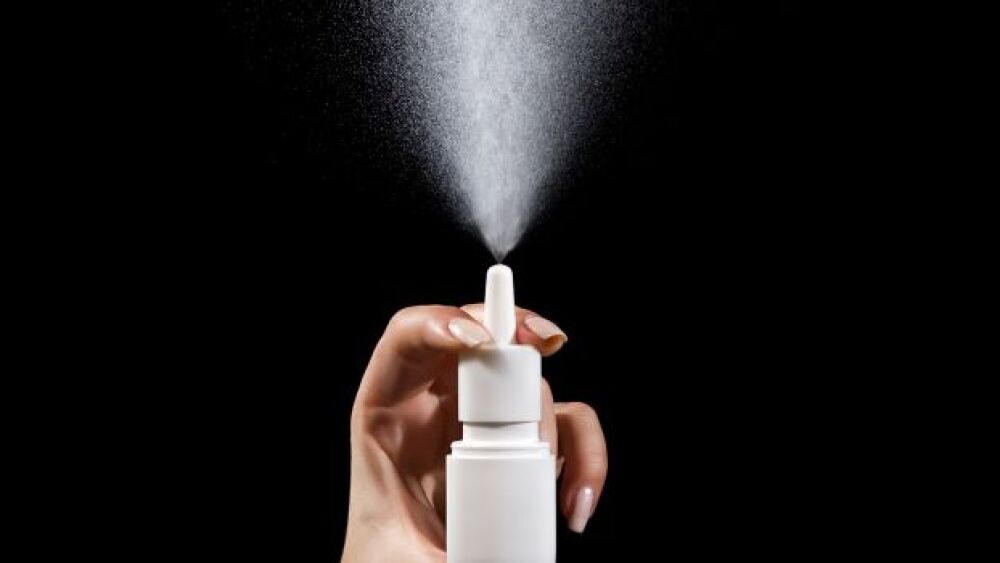The medication (Narcan nasal spray), should it be approved for use, will be squirted into the nasal passages, ensuring absorption into the body and reversing the overdose effects.
Narcan Nasal Spray
While still in the grips of the COVID-19 pandemic, the opioid crisis continues to run rampant across the United States. According to the U.S. Centers for Disease Control and Prevention (CDC), the primary driver of opioid deaths in the United States is related to synthetic opioids, such as fentanyl. But, there is one company that is working towards defeating it, the Narcan nasal spray can be the net big thing in the industry.
CDC data shows approximately 69,000 opioid-related deaths in the United States for the year ending in November 2020. Of those, 80% are suspected of being related to synthetic opioids, particularly fentanyl. With the rise of synthetic opioids, currently used emergency overdose medications such as Narcan are proving to be ineffective in preventing overdoses from these synthetic opioids, which are much stronger than even heroin.
What Else is There About Narcan Nasal Spray?
To address that issue, Opiant Pharmaceuticals, which developed Narcan nasal spray (nasal naloxone), is now assessing a sister product aimed at synthetic opioids. Earlier this month, Opiant announced positive pharmacokinetic data for OPNT003, an investigational nasal nalmefene formulation for opioid overdose.
In an interview with BioSpace, Opiant Chief Executive Officer Roger Crystal said OPNT003 would be able to be administered by anyone to an individual amid an opioid overdose. The medication, should it be approved for use, will be squirted into the nasal passages, which ensures absorption into the body and reverses the overdose effects.
Nalmefene has previously been approved for use as an injectable, but has since been taken off the market due to a lack of use, Crystal said.
With the rise of fentanyl-related overdoses, he said it’s “apparent it needs to be brought back into play,” albeit in a different formulation that is preferable in a community setting.
Narcan nasal spray is easier to use by non-medically trained individuals. Rapid administration of an anti-overdose medication can make a significant difference. During an opioid overdose, the victim stops breathing, and the lack of oxygen can impact the brain. Crystal said the availability of an overdose treatment could save lives.
In the pharmacokinetic study, Opiant found that nasal nalmefene achieved significantly higher plasma concentrations compared to an intramuscular injection. Additionally, the study found that the half-life of nasal nalmefene was significantly longer than even Narcan, which is the only approved treatment for opioid overdose. The half-life of about 11 hours is longer than the half-life of fentanyl, which is about seven hours.
“A rescue agent with a rapid onset and a long half-life is critical to saving lives from overdose,” Crystal said. He added that fentanyl has been found in multiple illegal narcotics, which increases the risk of exposure and overdoses.
Opiant is now awaiting pharmacodynamics from a study assessing OPNT003 compared to nasal naloxone in reversing the respiratory depression produced by the synthetic opioid.
Data from that study about Narcan nasal spray is expected later this year. If the data is positive, both the pharmacodynamics and pharmacokinetic studies will be used to form the basis of a New Drug Application with the FDA. The NDA could come in early 2022 if the data lines up. Crystal expressed optimism that OPNT003 will not only be effective against fentanyl but more traditional opioids as well.
In addition to OPNT003, Opiant is also developing overdose treatments for cannabinoid and alcohol overdose. The company’s cannabinoid treatment OPNT004 (drinabant) is intended for use with synthetic cannabinoids, sold under the names K2 or Spice. Crystal said these are dangerous drugs that can induce psychotic episodes in individuals. Currently, overdose victims, about 1.5 million in the United States each year, have to rise out the effects of the drug. OPNT004 is being developed as a treatment for an emergency room situation that can reverse the situation.
The company is also developing OPNT002 (nasal naltrexone) for Alcohol Use Disorder. OPNT002 had been expected to begin Phase II studies but was paused due to the COVID-19 pandemic. The trial remains paused until an optimal time has been determined. OPNT002 is aimed at binge drinkers who are unable to stop drinking once they have begun. Recruiting patients for the study has been tricky as many binge drinkers are wary of trying to stop due to side effects from the sudden lack of alcohol. OPNT002 is not aimed at cessation of drinking but a limitation of the desire to drink. Crystal said if the drug can kill the binging urge in patients, that will make a significant clinical difference.





